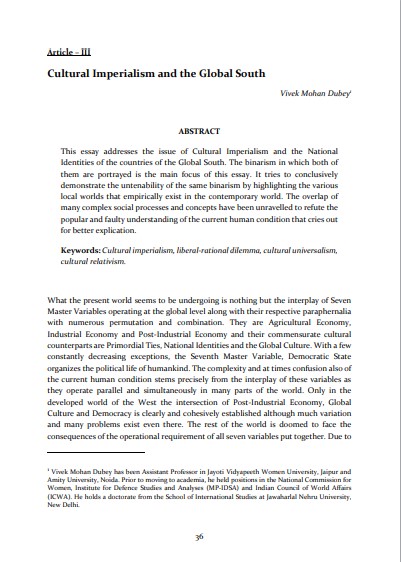Cultural Imperialism and the Global South
DOI:
https://doi.org/10.54945/jjia.v1i6.57Keywords:
Cultural imperialism, liberal-rational dilemma, cultural universalism, cultural relativismAbstract
This essay addresses the issue of Cultural Imperialism and the National Identities of the countries of the Global South. The binarism in which both of them are portrayed is the main focus of this essay. It tries to conclusively demonstrate the untenability of the same binarism by highlighting the various local worlds that empirically exist in the contemporary world. The overlap of many complex social processes and concepts have been unravelled to refute the popular and faulty understanding of the current human condition that cries out for better explication.







